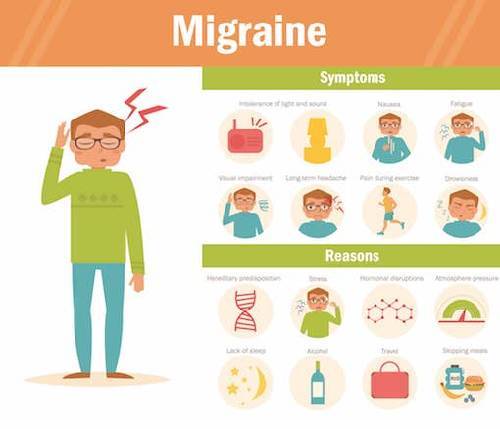
If you suffer from recurring headaches, you might be wondering what triggers them. The cause of headaches varies from person to person, but certain factors are common to most people. You can identify the triggers to avoid. These include physical and emotional stress. For more information, visit your physician. Read on for some of the most common causes of headaches. Here’s what you can do to prevent headaches. The first step is to identify what triggers them.
Tension type headaches occur more days than not, and it is often the first symptom to arise. They are persistent and often worse in the morning. The disorder affects approximately one in three adults, and it is associated with high disability and financial costs. The most painful time is during the productive years. In the UK, migraine is responsible for up to 25 million missed work days per year, and it is a leading cause of neurological consultations.
While the exact cause of migraine headaches is not yet known, it is generally the same in both types. The underlying disorder is the culprit for headaches, and it must be addressed. Treatment for tension type headaches often involves using anti-inflammatory medications to alleviate the inflammation. Corrective mouth appliances can help temporomandibular joint dysfunction. If the pain is worsening, a sleep study may be necessary to identify underlying conditions such as sleep apnea. If you have other symptoms, such as daytime sleepiness, obesity, or snore, you should also seek treatment from your doctor.
Unlike many types of headache, chronic TTH attacks do not go away on their own. It’s a condition that can cause severe pain. It is important to know what is causing your headache so that you can treat it as quickly as possible. Fortunately, there are several treatments for chronic TTH. A visit to your physician will determine whether you need a prescription medication or something else. It is important to make sure that your doctor can identify the cause of your chronic headache.
There are many causes of headache. The most common cause is an increase in intracranial pressure. This can be caused by a growing tumor, an infection, or a musculoskeletal problem. In both cases, it is important to get medical treatment as soon as possible because the pain can be life-threatening and may lead to permanent disability. If you suspect that you are suffering from TTH, you should seek medical advice immediately. If you suffer from chronic TTH, you must consult your family physician.
Some causes of headaches can be treated with medications, which are more effective than over-the-counter remedies. Some medications are available over-the-counter to relieve your pain. Other treatments are more invasive and involve surgery. If your pain is caused by a blood vessel disorder, your doctor will prescribe an antibiotic. If your symptoms are caused by a blood vessel disorder, your physician may recommend a blood test. If you have an artery disease, you should see a doctor right away.
In most cases, headaches can be relieved with medications that relieve pain and help you live a normal life. However, some types of headaches may not respond to medication, and the health website https://productosdesaludmx.com/
may recommend other treatment options for you. Those suffering from acute headaches should seek immediate medical attention. There are many different types of headache treatments, and some are more effective than others. Your doctor will decide what type of treatment is best for you based on your medical history.
The most important part of the diagnostic process is information. The more information you provide, the better the diagnosis and treatment plan will be. When you are suffering from a headache, the most important thing to do is to seek medical help. Your doctor will be able to determine the cause of the pain and prescribe the appropriate treatment for you. If the pain is coming from another source, the doctor will suggest treatment. If it’s a migraine, you should see a doctor.
A common type of primary headache is known as paroxysmal hemicrania. Symptoms of paroxysmal hemicrania are similar to those of cluster headache but are usually short-lived and last 2 to 45 minutes. Patients with this type of headache should see a doctor for a proper diagnosis. The best way to avoid a headache is to treat it at the source. If you are suffering from severe or recurring headaches, your doctor will prescribe medications to relieve the pain and restore your quality of life.